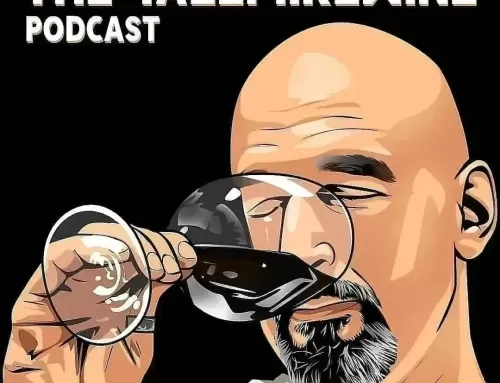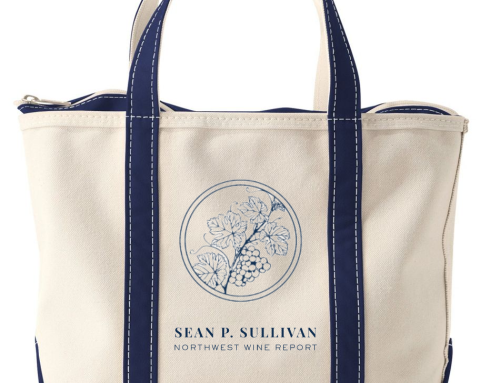
No one supports Washington State having a monopoly on the sale of spirits. Like everyone else, I support privatizing liquor sales but not in this manner and not with all of the add-ons in Initiative 1100.
Support for privatizing liquor sales in Washington State appears to be universal. I have not spoken with a single person believes the state should have a stranglehold on the sale of spirits. This is an indictment on the state legislature for not taking up this matter. The question is whether these initiatives are the method to privatize liquor and whether they are making the right changes. In my opinion, the answer to both of these questions is no (see below for additional thoughts on why). These initiatives are not just about privatizing liquor. They are about a whole lot more.
By and large, no one supports Initiative 1105. Neither do I.
Initiative 1105 was written by out-of-state interest groups in an attempt to preserve their position in the marketplace. As most voters seem to realize this and given that the financial impacts of 1105 could be large, no one I have spoken with supports this initiative. While I do not believe that the initiative being written by an out of state interest is enough reason to vote against it, I do believe that the requirement that spirits be sold through a distributor and the lack of ability to make up lost tax revenue if other initiatives on the ballot pass make Initiative 1105 unsupportable. Vote no.
Wineries, distributors, retailers, and consumers are confused about these initiatives. I cannot support making these types of sweeping, complicated changes through the initiative process when it is so hard for the very people being affected by the changes to understand them and understand the consequences.
There is widespread confusion and misinformation about the content of these initiatives within the industry and beyond. This is because the changes proposed are complicated and are largely hidden from site from voters. One longtime winemaker summed up the thoughts of many, saying, “It is very confusing even to someone who is in the wine business. The problem is there is so much wrapped into each initiative.” If people within the industry whose livelihoods will be positively or negatively affected by these changes are struggling to understand the proposed changes, how can consumers be expected to? This confusion makes it impossible for me to support making sweeping changes such as this through an initiative. It needs to go through the legislature.
Many believe that the passage of Initiative 1100 may harm Washington’s numerous small wineries. I agree that it may.
Many people I have spoken with firmly believe that many of the current regulations in Washington have allowed the Washington wine industry to prosper. Additionally, these people believe that the changes in Initiative 1100 would hurt small wineries. While this cannot be stated with complete certainty, it is clear that many of the current rules have allowed the industry to prosper to where it is at present. It is also clear that small wineries (less than 3,000 cases) are the backbone of the Washington wine industry and are part of what has made the industry special. I simply cannot support the types of changes proposed in Initiative 1100 unless there is adequate protections for these wineries (see below). Is this because I am looking to protect the wineries themselves? Partly but also as a consumer these are the places I frequent and buy my wine from. It would be like something happening that might close your favorite restaurant. Doing something to prevent that is not looking out for the restaurant, it’s looking out for yourself because you go there.
Many believe the elimination of Cash on Delivery (COD) would be harmful to their businesses. I agree that it would be for some.
Initiative 1100 removes the requirement to pay on delivery, allowing businesses to extend terms. This is not necessarily a bad thing. However, Initiative 1100 provides no protections for wineries or other businesses to make sure that this practice doesn’t harm their business. For example, if a retailer is unable to pay one account, they are still able to buy liquor from other accounts. They could presumably do this until they fail, owing everybody a whole lot of money that they will never get. The consequences of not getting paid in a timely fashion or not ever getting paid could be devastating for small wineries. Put in necessary protections, such as 1) not allowing a company to purchase from one business if they have a delinquent account on another and 2) penalizing late payments and I believe removing COD would be acceptable. How might this affect me as a consumer? I believe removing COD would increase the cost of small production wines, meaning I would either have to pay more for my bottle of wine or look at less expensive, higher production wines as an alternative. Both are bad alternatives for me personally.
Initiative 1100 is revenue negative. The state cannot afford it.
At a time when Washington is already in the midst of a fiscal crisis, Initiative 1100 removes a significant source of revenue. The state would be unable to make any alterations to the initiative for two years to make up lost revenue. Additionally, if other initiatives on the ballot pass, passing any legislation regarding taxation may be difficult. I also expect that there would be a patchwork of taxes at the local level to make up for lost revenue, which I think is confusing for consumers. To those who say, “It’s only one day of the state’s operating expenses,” and the like I say, “That’s like shutting down the whole state for a day.”
The main purported benefit for consumers is that Initiative 1100 will increase choices and decrease prices. For me, I don’t believe that is the case.
Will Initiative 1100 increase choices and decrease prices for me as a consumer? I believe that there will be more spirits choices, which will make no difference to me personally as I don’t generally drink spirits. I also believe that it will decrease prices for high volume wines, which are not typically the wines that I buy. I believe however that it may well increase the costs of small production wines, which is the majority of wine that I purchase. I believe that this will occur to make up for the cost of collecting on late bills, eating costs from failed businesses that didn’t pay, paying for promotional expenses, etc. So personally, for the types of liquor products I buy, I expect to be paying a bit more. That’s not very interesting to me. If your drinking habits differ, it might affect you differently.
Other Thoughts
As a citizen, I have no interest in seeing spirits for sale in convenience stores across the state until 2am every day. As a consumer, I don’t purchase or consume much hard liquor and never visit state liquor stores as their selection of wine is abysmal so having more access to spirits doesn’t affect me directly. Both inform my thinking about these initiatives.
I do have concerns that if Initiative 1100 fails that the state will never privatize liquor sales and make other necessary changes to the liquor laws. But here’s the catch. They might be more inclined to if we put sufficient pressure on them. Outside of people in the industry, how many citizens out there have contacted the legislature about this issue? Personally, I’ll be voting no on Initiatives 1100 and 1105 and contacting my legislators to encourage them to privatize liquor sales. Will it work? Who knows but it’s better than holding your nose and voting yes on these initiatives in my opinion.
This is my last post on this subject. Thanks for following these posts over the last several weeks. I respect that there are many diverging viewpoints and appreciate all who have shared their thoughts and opinions. No matter which way you go, please remember to vote!
Back to our regularly scheduled program (a collective sigh of relief).







Sean, you have done a fantastic job putting all this information together. You are to be commended for it.
However, I do not agree with all of your conclusions. I think small wineries have less to fear from 1100 than they do. On the whole, I think consumers would benefit from 1100.
In the 40 years that I have been in the wine business, I have seen liquor privatization initiatives come and go. I agree this is an issue that the legislature should deal with. I am not confident of that happening if 1100 does not pass. If the legislature does address it, you can be dead certain that the beer industry and wholesalers will lobby heavily to to shape privatization in their favor.
Rand, thanks for the comment and also for offering your insights the last several weeks. They definitely gave me much to think about.
I share your concern about whether the legislature will take privatization up and, if they do, the extent to which it will be shaped by equally powerful interests. At least, I hope, if they do small producers can band together and try to have a seat at the table. However, it will be critical to be united to exert influence which, as we have seen here, is difficult to do.
Hope our paths cross in WW for Fall Release.
Excellent journalism Sean, and thank you for all the hard (and unpaid) work. Bottom line, I have come to exactly the same conclusions. Maybe we can share an extra big umbrella when we are seen together in public…
Paul, thank you and I'll take you up on the umbrella. If you don't recognize me, I'll be the one with the dark glasses.
Sean,
Thank you for your good journalism. While I came to the same conclusion many weeks ago, your presentation is ever so much clearer and cogent than my summation. When friends and relatives have been asking my opinion on these issues, I give them my brief take and then refer them to your column for a greater explanation.
Michael McLean
So I am a young winery owner, and produce almost 2500 cases annually and this is a family winery. Also I must say both of us in on this business work regular jobs, so we work on wine in the night. All I know is that no distributor will touch me because I am small, even though I get grapes from the best vineyards in the state without question. Then I try to distribute to resturants and wine shops and there is a no go there because I dont have a distributor they say(really the distributor wont sell them wine if they see my product) and it is making it difficult to stay a float right now. I also have to keep my price down in order to move wine which equal me to break even every year right now. All I hope is people start looking outside the box, Yes St Michele makes reisling, yes these big produces can make cheap wine, but try spending 3 dollars more on a wine from a winery that you have never heard of in washington.I bet that money stays in this state and gets passed around that those extra 3 dollars come back to you. Thanks
The young guy
Michael,
So glad to hear that the posts have been helpful.
Anon,
I think you describe the plight of many a small winery.
One thing I failed to mention above is that the state having a monopoly on liquor sales is a serious hindrance and problem to the restaurant industry. The issue simply must be addressed regardless of what happens with these initiatives.
Res the government getting out of the spirit business. Many of us would hope to end the insanity of our current war on drugs, which imposes huge internal costs on our country, and makes a number of other countries ungovernable. I would not want to see drug selling turned over to private for profit companies, even Costco. It is readily acknowedged that alcohol causes far more disruption and pain than drugs do. It is a small price to pay (is that the wrong word?) for spirits and eventually drugs to have much closer government control. RobLL
You wrote:
For example, if a retailer is unable to pay one account, they are still able to buy liquor from other accounts. They could presumably do this until they fail, owing everybody a whole lot of money that they will never get. The consequences of not getting paid in a timely fashion or not ever getting paid could be devastating for small wineries.
It's called a credit check. Most going concerns use them to avoid this very issue. Free the grapes people!
Sean – thanks for the insights and opinion (even though I disagree) – I'm glad to see that you took an opinion, instead of just voting against the process.
Small wineries are my biggest concern, and here's the thing – if they are making a great product, and most are, they'll find ways to compete with volume discounts at the big shops through innovation and competition and building their brands. In the age of the internet, the best products should always find a home.
We have a chance to move past the prohibition era laws with 1100. Lets not miss that chance.